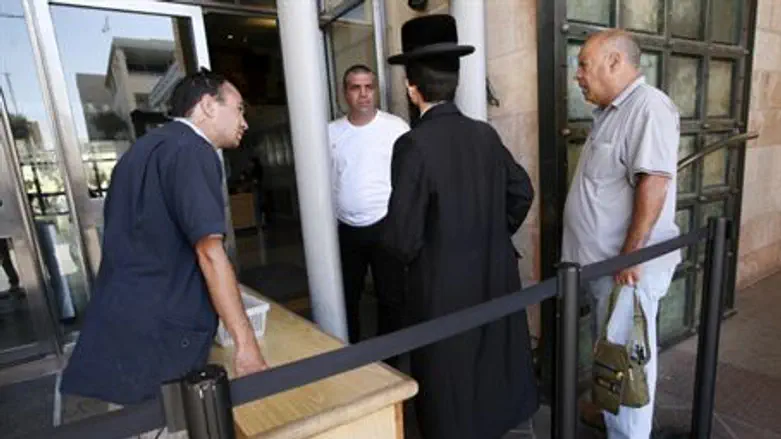
The Bayit Yehudi (Jewish Home) party is facing a split that could affect the outcome of the Jerusalem City Council race.
When the local Jerusalem branch of the party held primaries to choose candidates for the city council, former MK Zevulun Orlev was chosen to head the list.
However, a party court overturned the primaries as illegal under party guidelines, and Bayit Yehudi leaders at the national level compiled their own list, headed by accountant and long-time activist Dov Kalmanovich. In second and third place were attorney Herzl Yechezkel and hareidi-religious activist Racheli Eibenboim, who later left the race after receiving threats from within the hareidi community.
The matter of the two party lists ended up in court. The Tel Aviv District Court suggested that the sides try to agree on a united list.
Local and national party leaders sat down to try to hammer out a deal – but without success. Sources in the local leadership accused national party leaders of inflexibility, saying that while both sides were willing to compromise on a new candidate to lead the list – potential front-runners included Rabbi Eitan Eisman and David Hadari – national leaders insisted that their top three candidates be included in the top five.
“We aren’t willing to have the people who were chosen in the local branch’s primaries become ‘place fillers’ who won’t get in to the city council,” an activist in the Jerusalem branch told Arutz Sheva.
Itzik Moshe, head of the Jerusalem branch of Bayit Yehudi, is planning a branch meeting Sunday night to discuss the matter, and, apparently, to declare that the local Bayit Yehudi chaper will run its own list in the race, separately from the Bayit Yehudi list supported by the party’s national leadership.
Herzl Yechezkel, who is close to Minister Naftali Bennett, sent an email to party activists criticizing Moshe’s decision.
“Hello friends. The manager of the [Jerusalem] branch continues his illegal behavior. He is holding meetings even though the matter is still in court. We ask that you not attend this blatantly illegal meeting,” Yechezel wrote.
The national party leadership wrote, “The Bayit Yehudi in Jerusalem is going up in the polls. We suggest to all activists who want a position, including the Moshe family, to join in our success.”
Jerusalem branch activists rejected Yechezkel’s accusations.
“The Moshe family has acted according to the democratic means at hand, in accordance with the party constitution, the branches, and branch protocol,” they argued.